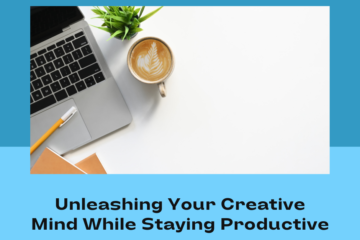
How to Have an Expert Mind
This article is for you if you’ve ever looked at the leaders in your field and thought, “How do they think so differently?” ” Expert Mind Unleashed: Your Comprehensive Guide to Nurturing Brilliance
” is where you can start. Here, we take the mystery out of developing an expert mind, turning what may seem like an impossible job into a step-by-step process that can be done.
It’s important to keep in mind that people don’t become experts quickly. It takes time to learn, forget, and then learn again. We can all learn to think like experts if we work hard enough. All we need is the right direction, a lot of hard work, and to know how our minds work.
Embrace a Growth Mindset
The idea behind a growth mindset is that knowledge and skills are not fixed traits that we are born with. Instead, they can be changed and grown over time, no matter where we start. This point of view supports learning throughout life and staying strong, both of which are important for success.
Understanding Fixed vs. Growth Mindset
To fully understand a growth mindset, we need to compare it to a fixed mindset, which is the idea that knowledge and skills are fixed from birth. People with a fixed mindset avoid challenges, give up easily, don’t pay attention to helpful comments, and feel threatened by the success of others. People with a growth mindset, on the other hand, see problems as chances, don’t give up when things don’t go their way, learn from criticism, and find lessons and inspiration in the success of others.
Implications of a Growth Mindset
Embracing Challenges:
A growth mindset tells us to see obstacles as chances to learn and grow. When we face a hard job, we don’t give up. Instead, we are driven to push our limits and learn something new.
Resilience in the Face of Setbacks:
Failure is an important part of growth. Instead of seeing loss as a sign of how good we are, a growth mindset tells us to see it as a way to get better. This helps build resiliency and the ability to get back on your feet after a setback.
Learning from Criticism:
When criticism is helpful, it can help you figure out how to improve. When we have a growth attitude, we can see criticism as a chance to learn, which makes us more open to feedback and less defensive when our skills are criticized.
Learning from Criticism:
Instead of feeling frightened by the success of others, a growth mindset makes us look for ways to learn and be inspired by it. This way of looking at things helps us keep a positive attitude and helps us grow and progress.
How to Develop a Growth Mindset
To develop a growth mindset, we have to be aware of our fixed mindset habits and try to change them. It’s about changing thoughts like “I’m not good at this” with “What am I missing?” and “I can’t do this” with “I can’t do this, yet.” It means making goals that are both realistic and challenging, thinking about how we learn, accepting failure, and always looking for ways to learn and get better.
Deliberate Practice
Anders Ericsson, a psychologist, came up with the term “deliberate practice” after he looked at the habits of top artists, athletes, and chess players. He found that practicing or having knowledge in a field is not enough to make someone an expert. Instead, what sets good performers apart from pros is how they practice and how well they do it.
Deliberate practice is a planned, step-by-step way to learn a skill or get better at it. It takes focused attention, clear goals, and feedback. It is fundamentally different from regular practice or learning that has nothing to do with a goal.
Specific Goals:
Repetition without a goal is not the same as deliberate practice. It means making goals that are clear, measurable, attainable, important, and have a deadline. For example, a singer might want to learn how to play a tricky piece of music, or a tennis player might want to improve their serve.
Concentration:
It requires that the learner focus on the job at hand. This level of focus makes it possible for the learner to be fully involved in the action, which leads to more effort and better practice.
Feedback:
A key part of intentional practice is getting feedback right away. It lets teachers see where they need to improve and make the necessary changes. You can get feedback from teachers or mentors, or you can do it on your own.
Stepping out of the Comfort Zone:
With deliberate practice, you keep pushing yourself outside of your comfort zone and take on jobs or skills that are just outside of your current abilities. This process, which is often called “desirable difficulties,” helps people keep learning and getting better.
Repetition and Refinement:
With deliberate practice, skills are used over and over again and are improved based on input. It’s not about doing the same thing over and over without thinking, but about improving your methods by doing them over and over again.
Mental Representations:
Experts build up complex mental models or mental representations of their fields. This lets them process a lot of knowledge quickly and well. Practicing on purpose helps to improve and sharpen these mental images.
Emphasizing Technique:
It focuses on getting the method right instead of getting the best results. By making the process better, the level of the result will always go up.
Deliberate practice takes a lot of work and isn’t always fun in the way we usually think of fun. It takes a lot of patience and focus, and it often includes doing things that are hard and outside of your comfort zone. But it is the best way to get better at something and become a master.
By putting focused practice into your daily life, you set yourself up for continuous improvement and the development of real expertise, which lets your mind and skills reach their full potential. Remember that you can’t be a master just because you were born that way.
Seek Knowledge and Never Stop Learning
The house of expertise is built on the basis of knowledge. It’s important to keep building on that base by always learning new things. Develop a mind that asks questions, looks around, and tries to understand. You can learn from books, online courses, seminars, and teachers, but you can also learn from what you do and what you see. Being willing to learn also means being willing to forget and relearn, since the world and its information are always changing.
Problem-Solving and Critical Thinking
Expertise isn’t just about knowing things; it’s also about knowing how to use those things well. This application is built on problem-solving and critical thought. By breaking down complicated problems, analyzing their parts critically, and coming up with workable answers, you’re not only solving a problem, but also sharpening your expert mind. Every problem gives you a new chance to stretch your brain, so take advantage of these chances and learn from each one.
Reflective Learning
Reflective learning is the way we can look back on our journey, figure out what we did, and make it better. This isn’t just about admitting your mistakes. It’s also about learning from them and using what you’ve learned to make better choices in the future. A learning journal can be a very helpful tool in this process because it lets you keep track of your thoughts, new ideas, and growth. Reflection is the first step toward reflection, which is a sign of a skilled mind.
Surround Yourself with Experts
Who you hang out with affects how you think and what you do. When you hang out with experts, you can watch and learn from how they think, what methods they use, and how they act. This isn’t a competition; it’s about learning. As you talk to experts, you’ll get ideas, tips, and maybe even a mentor to help you find your own way to becoming an expert.
Conclusion:
At first glance, becoming an expert might seem like a scary process, but it’s actually a trip full of chances to learn, grow, and get wiser. It’s not a place you get to, but a road you walk along, getting better with each step. Don’t forget that your talent isn’t something you just find, it’s something you have to take care of and grow. So, keep your sense of wonder, be patient with your growth, and always try to get better. You have the potential to become an expert; the trip begins when you decide to start.
Remember that getting good at something isn’t always a straight line. It’s a journey of learning, with both hard times and good times. Every step you take brings you closer to letting out your talent. So, start right now, enjoy the trip, and let the world see how good you are.



0 Comments